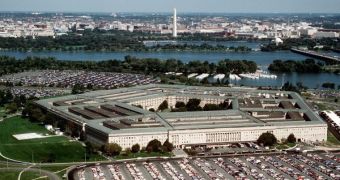Even before he ran for President, Barack Obama expressed his concern about the morality and use of populating the orbit with space weapons, fearing that if the US engaged in such activities, than every other country with launch capabilities would follow suit. His view thoroughly opposed that of then-President Bush, who would have no limitations of sending weapons in space, either by deals or by treaty. The new commander-in-chief has recently raised this problem again, but the reactions have been mixed.
Some of the top military advisors told him that he might be better off trying to further regulate orbital space via international treaties, instead of taking on such a complex problem as space weapons. Others saluted the initiative, and said that such a rule would set the basis for a different sort of peace, one that was not founded on threat, but on cooperation instead, which was far harder to reach. Also, they argued that this would represent another step away from the Bush-type line of policies.
"The Bush administration rejected space diplomacy. We refused to negotiate on any subject that could limit U.S. military options. We have a shift from an administration that was very dismissive of multilateral negotiations, to an administration that is open to that possibility if it improves U.S. national security," the co-founder of the Henry L. Stimson Center think tank in Washington DC, Michael Krepon, says.
"Obama is delivering on his promise of more cooperation. I like the idea of working together more with our allies, but verification of [an international ban concerning space weapons] is very difficult. If you can't verify something, it makes it difficult to build a treaty," Lt. Gen. James Armor, a retired US Air Force General, and the Pentagon's National Security Space Office former head, adds.
"The problem is most space technologies have multiple uses, so the approach that should be taken needs to look at actions rather than capabilities. For example, a number of nations use lasers to track satellites, but lasers could also be used to attack satellites in space. So we should focus on outcomes rather than trying to ban certain classes of technology," the director of the United Nations Institute for Disarmament Research, Theresa Hitchens, who has opposed the concept of weapons orbiting Earth for a long time, shares.
The good thing about Obama's effort is that it shows a change of policies at the White House, a break from the traditional "We work alone" principle applied by George W. Bush. Although that may sound good at first, it only means further isolating America from the world, and more criticism of the country on the part of its enemies. Cooperation can indeed bring more benefits than seclusion.

 14 DAY TRIAL //
14 DAY TRIAL //